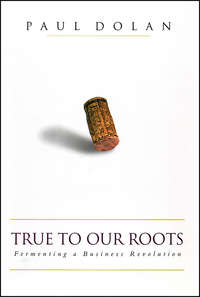
Полная версия
Счастливы когда-нибудь
В Швейцарии исследователи связали между собой данные об удовлетворенности доходом и об удовлетворенности жизнью, а также с информацией о количестве автомобилей марок Porsche и Ferrari на тысячу человек населения[36]. Оказалось, что чем больше таких машин в округе, тем больше местное население недовольно своей зарплатой. Количество дорогих машин также сказывается, хотя и в меньшей степени, на общей удовлетворенности жизнью.
Зависть может оказывать искажающий эффект, особенно когда она касается денег. Это было доказано серией экспериментов, недавно проведенных в США[37]. В одном из них участников попросили занять завистливую или нейтральную позицию, когда они думают о таком же, как они, человеке, отличающемся лишь в одном отношении – он очень богат. Затем участникам предложили оценить ежедневные взлеты и падения, которые богатый человек может испытывать, отвечая на структурированные вопросы, например: «Если бы вы были тем человеком, как часто вы бы испытывали мелкие неудобства в сравнении с вашей нынешней жизнью?» Те, кто встал в позицию завистника, гораздо чаще приписывали воображаемому богачу взлеты, в отличие от респондентов, занявших нейтральную позицию. То есть люди, завидуя, представляют жизнь богатых намного лучше и счастливее, чем она есть в реальности. Поэтому если вы завидуете тем, кто богаче, то лучше представьте их ужасные поездки на работу, их вопящих детей и огромные налоговые счета.
Конец ознакомительного фрагмента.
Текст предоставлен ООО «ЛитРес».
Прочитайте эту книгу целиком, купив полную легальную версию на ЛитРес.
Безопасно оплатить книгу можно банковской картой Visa, MasterCard, Maestro, со счета мобильного телефона, с платежного терминала, в салоне МТС или Связной, через PayPal, WebMoney, Яндекс.Деньги, QIWI Кошелек, бонусными картами или другим удобным Вам способом.
Сноски
1
Dolan, P. (2015), Happiness by Design: Finding Pleasure and Purpose in Everyday Life. London: Penguin.
2
Jay, K. L. and Jay, T. B. (2015), Taboo word fluency and knowledge of slurs and general pejoratives: deconstructing the poverty-of-vocabulary myth. Language Sciences, 52, 251–9; Giordano, F. (2016), The relationship between profanity and intelligence. Yale Review of Undergraduate Research in Psychology, 16.
3
Jay, K. L. and Jay, T. B. (2015), Taboo word fluency and knowledge of slurs and general pejoratives: deconstructing the poverty-of-vocabulary myth. Language Sciences, 52, 251–9.
4
Generous, M. A., Frei, S. S. and Houser, M. L. (2015), When an instructor swears in class: functions and targets of instructor swearing from college students’ retrospective accounts. Communication Reports, 28 (2), 128–40.
5
Cordova, J. V. (2001), Acceptance in behavior therapy: understanding the process of change. The Behavior Analyst, 24 (2), 213–26.
6
Hechter, M. and Opp, K. (2005), Social Norms. New York: Russell Sage Foundation.
7
Fiske, S. T. (2009), Social Beings: Core Motives in Social Psychology. Hoboken, N J: John Wiley & Sons Inc.
8
Dominique, J. F., Fischbacher, U., Treyer, V., Schellhammer, M., Schnyder, U., Buck, A. and Fehr, E. (2004), The neural basis of altruistic punishment. Science, 305 (5688), 1254–8; Raine, A. and Yang, Y. (2006), Neural foundations to moral reasoning and antisocial behavior. Social Cognitive and Affective Neuroscience, 1 (3), 203–13.
9
Pratto, F., Sidanius, J., Stallworth, L. M. and Malle, B. F. (1994), Social dominance orientation: a personality variable predicting social and political attitudes. Journal of Personality and Social Psychology, 67 (4), 741.
10
Atkinson, A. B. and Brandolini, A. (2013), On the identification of the middle class. In J. C. Gornick and M. Jäntti, eds., Income Inequality: Economic Disparities and the Middle Class in Affluent Countries. Stanford, Calif.: Stanford University Press, 77–100.
11
Natcen Social Research. British Social Attitudes (2015). См.: http://www.bsa.natcen.ac.uk/latest-report/british-social-attitudes-33/social-class.aspx.
12
Dolan, P. and Kudrna, L. (2016), Sentimental hedonism: pleasure, purpose, and public policy. In Joar Vittersø, ed., Handbook of Eudaimonic Well-Being. Switzerland: Springer International Publishing, 437–52.
13
Gamst, F. C. (1991), Foundations of social theory. Anthropology of Work Review, 12 (3), 19–25.
14
Walker, A. D. M. (1974), Negative utilitarianism. Mind, 83 (331), 424–8.
15
Darwall, S. (2007), Consequentialism. Malden, Mass.: Blackwell.
16
Scanlon, T. M. (2003), Rights, Goals, and Fairness. Cambridge: Cambridge University Press.
17
Nickerson, R. S. (1998), Confirmation bias: a ubiquitous phenomenon in many guises. Review of General Psychology, 2 (2), 175.
18
Adams, H. E., Wright, L. W. and Lohr, B. A. (1996), Is homophobia associated with homosexual arousal? Journal of Abnormal Psychology, 105 (3), 440–45.
19
Pilling, D. (2018), The Growth Delusion. New York: Tim Duggan Books, 19.
20
Pew Research Center (2008), Social demographics and trends. См.: http://www.pewsocialtrends.org/2008/04/30/who-wants-to-be-rich/.
21
Allstate National Journal Heartland Monitor XXI Key Findings (2014). См.: http://heartlandmonitor.com/wp-content/uploads/2015/03/FTI-Allstate-NJ-Heartland-Poll-Findings-Memo-11-5-14.pdf.
22
Stiglitz, J. (2013), The Price of Inequality. New York: W. W. Norton & Company.
23
Pfeffer, F. T. and Killewald, A. (2015), How rigid is the wealth structure and why? Inter- and multigenerational associations in family wealth. Population Studies Center Research Report, 15–845.
24
Layard, R., Mayraz, G. and Nickell, S. (2008), The marginal utility of income. Journal of Public Economics, 92 (8–9), 1846–57.
25
Dolan, P., Peasgood, T. and White, M. (2008), Do we really know what makes us happy? A review of the economic literature on the factors associated with subjective well-being. Journal of Economic Psychology, 29 (1), 94–122; Layard, R. and Clark, D. M. (2014), Thrive: The Power of Evidence-Based Psychological Therapies. London: Penguin.
26
Smith, S. C. (2015), Ending Global Poverty: A Guide to What Works. New York: St. Martin’s Press.
27
Kahneman, D. and Deaton, A. (2010), High income improves evaluation of life but not emotional well-being. Proceedings of the National Academy of Sciences, 107 (38), 16489–93.
28
Suls, J. and Wheeler, L., eds., (2013), Handbook of Social Comparison: Theory and Research. New York: Springer Science & Business Media.
29
Boyce, C. J., Brown, G. D. and Moore, S. C. (2010), Money and happiness: rank of income, not income, affects life satisfaction. Psychological Science, 21 (4), 471–5; Luttmer, E. F. (2005), Neighbors as negatives: relative earnings and well-being. Quarterly Journal of Economics, 120 (3), 963–1002.
30
Diener, E., Sandvik, E., Seidlitz, L. and Diener, M. (1993), The relationship between income and subjective well-being: relative or absolute? Social Indicators Research, 28 (3), 195–223.
31
Knight, J., Song, L. and Gunatilaka, R. (2009), Subjective well-being and its determinants in rural China. China Economic Review, 20 (4), 635–49; Graham, C. and Felton, A. (2006), Inequality and happiness: insights from Latin America. Journal of Economic Inequality, 4 (1), 107–22.
32
Cheung, F. and Lucas, R. E. (2016), Income inequality is associated with stronger social comparison effects: the effect of relative income on life satisfaction. Journal of Personality and Social Psychology, 110 (2), 332; Layard, R., Mayraz, G. and Nickell, S. (2010), Does relative income matter? Are the critics right? In E. Diener., J. F. Helliwell and D. Kahneman, eds., International Differences in Well-Being. New York: Oxford University Press, 139–65.
33
Luttmer, E. F. (2005), Neighbors as negatives: relative earnings and well-being. Quarterly Journal of Economics, 120 (3), 963–1002.
34
Prati, A. (2017), Hedonic recall bias. Why you should not ask people how much they earn. Journal of Economic Behavior & Organization, 143, 78–97.
35
Agarwal, S., Mikhed, V. and Scholnick, B. (2016), Does Inequality Cause Financial Distress? Evidence from Lottery Winners and Neighboring Bankruptcies. Federal Reserve Bank of Philadelphia Working Paper No. 16–4.
36
Winkelmann, R. (2012), Conspicuous consumption and satisfaction. Journal of Economic Psychology, 33 (1), 183–91.
37
O’Brien, E., Kristal, A. C., Ellsworth, P. C. and Schwarz, N. (2018), (Mis) imagining the good life and the bad life: envy and pity as a function of the focusing illusion. Journal of Experimental Social Psychology, 75, 41–53.



